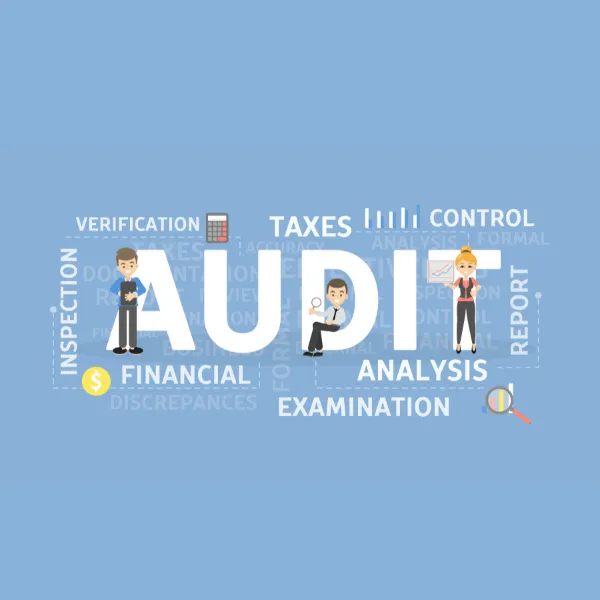Currently, Thailand has laws in the Act level of approximately 1,000 Acts and other countless numbers of lower-level laws such as Ministerial Regulation, Ministerial Announcement, Local Administration Announcement, etc. To operate a business, a restaurant owner may need up to 10 permits to run a business. Therefore, it is very difficult for the owner to identify whether the business has all the required licenses, and whether the operation is in line with the legal requirements.
Various documents and graphs surrounding a sign that says ‘AUDIT’
For example, a hotel or factory operation would be subject to the extensive list of legal requirements as follows:
| Laws | Details |
|---|---|
| Town zone & building control | Some areas are not permitted to operate certain businesses. |
| Hotel | Requirements for safety reasons, license, guests record, etc. |
| Factory | Requirements for safety reasons, license, environment impact control, machines record, etc. |
| Food | License for storage, process, and sale. |
| Tobacco & alcohol | License to sell. |
| Fitness | License and requirements for hygiene. |
| e-commerce | License, requirements for system security/record, order complication, etc. |
| Direct marketing |
Moreover, the above list does not include the requirements of labor protection laws and the standard requirements for maintaining the corporation such as document keeping, performing of statutory meetings, and submitting of a financial audit.
Some owners may not even be aware that their business may not be complied with the law as the owner never verifies it with an attorney who has experience in the corporate compliance field. The non-compliance issue may not be of the owner’s intention as the issue may be kept under the carpet which no one would know. However, these non-compliance issues are not revealed to the public/authorities until it has any conflict or scandal which could lead to a deep investigation. For example, if the hotel accidentally leaks polluted water into a public water source, the official (and news reporters) will likely investigate every activity of the hotel in order to find more illegal activities. The penalty for non-compliance may be just a small fine and/or a multi-million fine with years of imprisonment for the directors.
Important Recommendation:
Therefore, the company must ensure that the business is in line with all applicable laws by performing a legal audit at least once every two years to minimize possible legal risks.

